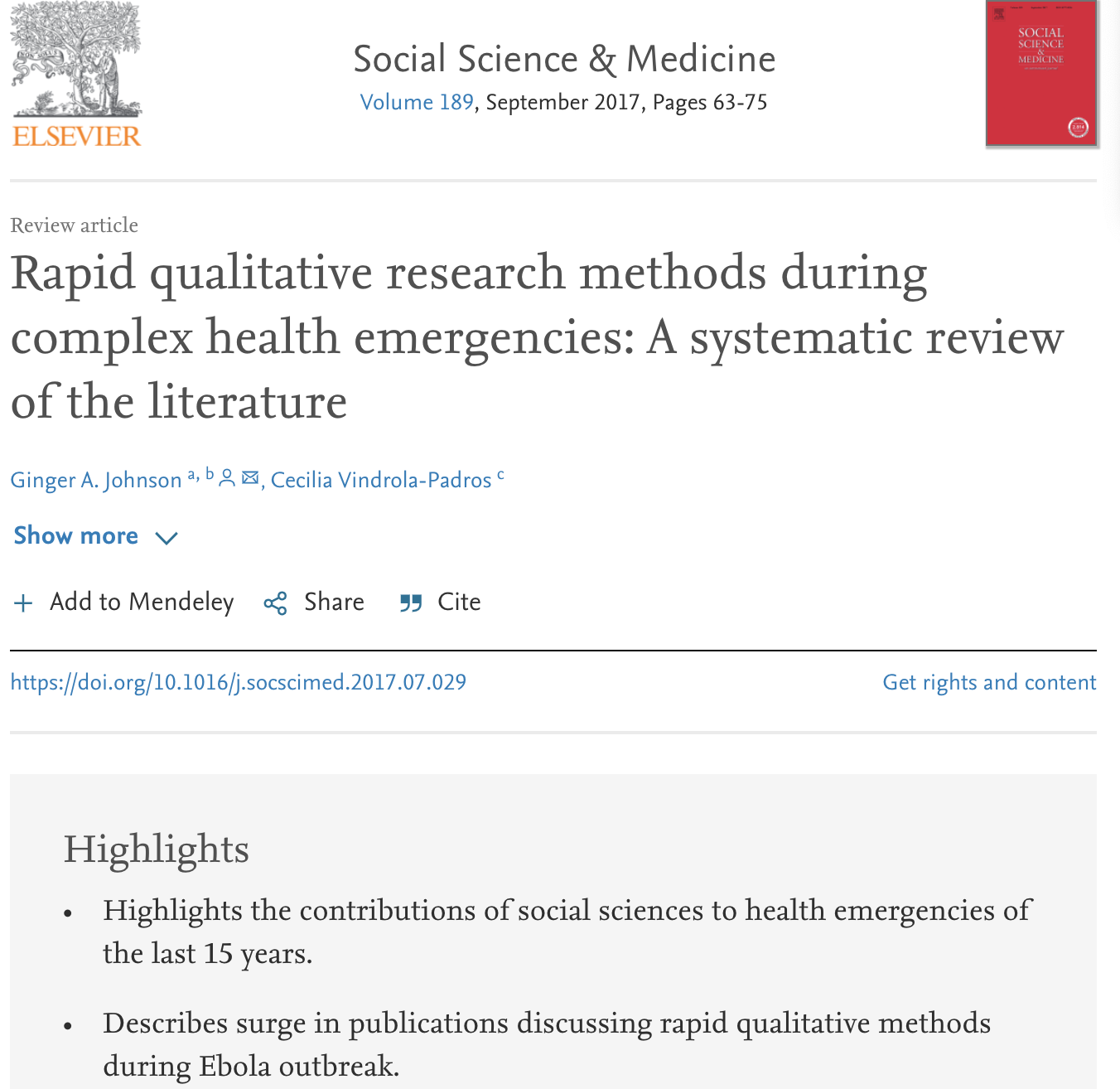Rapid Qualitative Research Methods During Complex Health Emergencies: A Systematic Review of the Literature
Description
The 2013- 2016 Ebola outbreak in West Africa highlighted both the successes and limitations of social science contributions to emergency response operations. An important limitation was the rapid and effective communication of study findings. A systematic review was carried out to explore how rapid qualitative methods have been used during global health emergencies to understand which methods are commonly used, how they are applied, and the difficulties faced by social science researchers in the field. We also assess their value and benefit for health emergencies. The review findings are used to propose recommendations for qualitative research in this context. Peer-reviewed articles and grey literature were identified through six online databases. An initial search was carried out in July 2016 and updated in February 2017.
The PRISMA checklist was used to guide the reporting of methods and findings. The articles were assessed for quality using the MMAT and AACODS checklist. From an initial search yielding 1444 articles, 22 articles met the criteria for inclusion. Thirteen of the articles were qualitative studies and nine used a mixed-methods design. The purpose of the rapid studies included: the identification of causes of the outbreak, and assessment of infrastructure, control strategies, health needs and health facility use. The studies varied in duration (from 4 days to 1 month). The main limitations identified by the authors were: the low quality of the collected data, small sample sizes, and little time for cross-checking facts with other data sources to reduce bias. Rapid qualitative methods were seen as beneficial in highlighting context-specific issues that need to be addressed locally, population-level behaviours influencing health service use, and organizational challenges in response planning and implementation. Recommendations for carrying out rapid qualitative research in this context included the early designation of community leaders as a point of contact, early and continuous sharing of findings, and development of recommendations with local policymakers and practitioners.
Additional languages

DETAILS
Publication
Authors
Emergency
Scope
Language
Keywords

